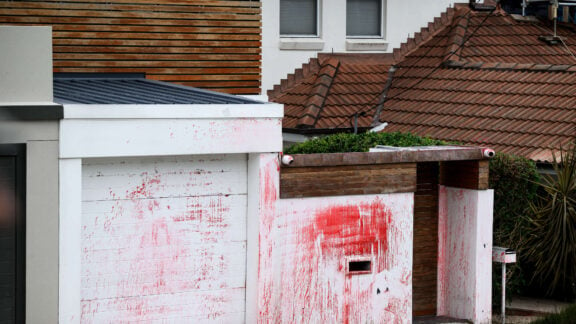While Greek politicians continue discussions on how to keep the Greek economy afloat and stave off crippling debt repayments, Manolis Rallakis is leading the fight against pension cuts.
A former welder, the 75-year-old is now general secretary of the Greek pensioners union, and it’s easy to see why.
With a fighting spirit, he told The Guardian this week, “the lost battle is the battle never fought, and now we are fighting the battle of our lives”.
Since the economic crisis began, Rallakis’ pension has been cut by a third – to €1100 a month.
“It is enough just to cover the absolute essentials, and is more than most,” he says.
“What we want is not only to retain the pensions we now have, but win back everything they stole from us.”
According to figures provided by The Guardian, almost 45 per cent of Greece’s 2.5 million retirees are living on pensions of less than €665 a month – a figure considered by the European Union to be below the poverty line.
In a recent statement by the office of Greece’s deputy prime minister, Yannis Dragasakis, the SYRIZA minister said he recognised how much families relied on their pensions.
“After five years of recession and a ‘war-time’ cumulative loss of 25 per cent of GDP, pensions have become the last social safety net preventing Greek society from completely falling apart. The elderly population is literally feeding the rest of the family,” he said.
Despite this, Greece’s creditors seem to ignore Dragasakis’ impassioned claim.
Compared to other EU states, Greece spends the most on its pensions, which are perceived by some to be overly generous and encourage premature retirement.
“It is a political quagmire and a hugely sensitive issue, but without being overhauled drastically, the system is just not sustainable,” said Kevin Featherstone, head of the Hellenic Observatory at the London School of Economics.
Since the height of the crisis it is estimated that more than 800,000 Greeks are claiming a pension from IKA – Greece’s key social security fund.
“The pension system is giving a false impression of security in an environment that has become very insecure,” says economics professor and pensions expert, Platon Tinios.
With growing pressure on the Greek government to move in the right economic direction, the retirement age has been raised from 65 to 67 and plans have been discussed to lower pensions above €700 a month.
For Manolis Rallakis, they’ve got it all wrong.
“This was not the life that any of us envisaged,” he says.
“Our funds have been plundered, hospitals have been closed; there aren’t enough doctors. Unless you pay up front, you can’t get proper care and none of us have the money to do that. What more can I say?”
Source: The Guardian








